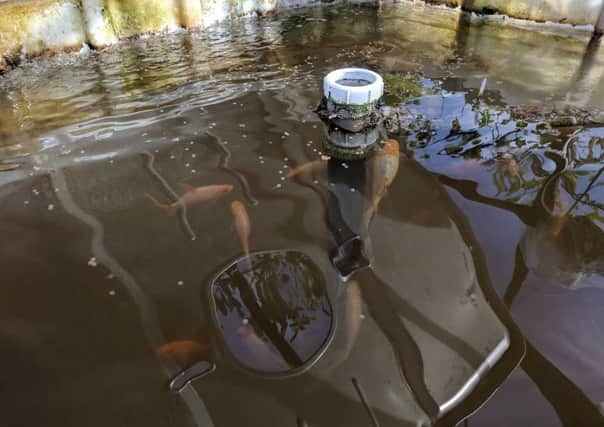VIDEO: Why growing veg using fish waste could benefit us all


A process known as ‘aquaponics’ combines growing vegetables in water with growing fish. It sees the fish produce ammonia, which is then translated into nitrates by beneficial bacteria.
The plants then remove the nitrates which at the same time both acts to filter and clean the water so that it can be continuously recycled.
Advertisement
Hide AdAdvertisement
Hide AdThe process effectively sees fish waste converted into a fertiliser for vegetables and since June, students have been growing chard, lettuce, rocket, sorrel, broad beans, strawberries and leeks to test the system.
But to explore this method further, they have today launched a pioneering Kickstarter campaign to raise £23,000 in partnership with working farm and rural skills centre Humble By Nature, run by Kate Humble.
In return for contributions to the campaign, those who donate will get help to set up their own ‘Resilience Food Farms’ at home.
The more people who join in, the more experts believe they will find out about how aquaponics works best in the British climate, how much food it produces and how much it costs.
Advertisement
Hide AdAdvertisement
Hide AdProf Hamish Cunningham, of Sheffield University’s computer science department, said: “Sustainable agriculture is about feeding ourselves without destroying the soil or using up fossil fuels - but in many ways we’ve blown it. This means we need to think more about resilience, our capacity to withstand shocks and changes.
“We need to grow food in more places - for example, in the nooks and crannies of cities and towns.
“The more we can meet our basic needs like food and energy in our local communities, the more resilient those communities become - and the less scarce the resources we use in the process, the more sustainable our lifestyles become.”